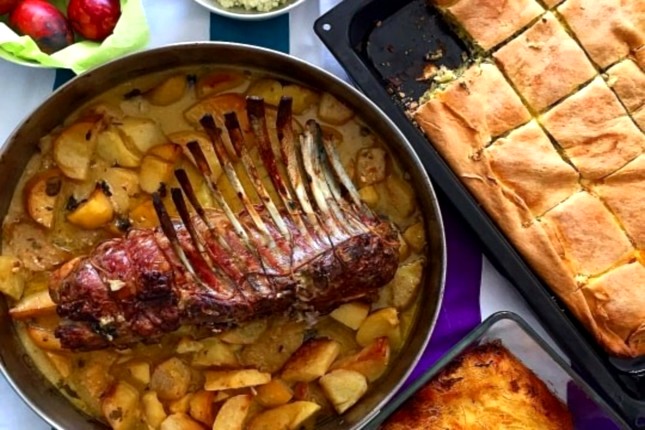Are you planning to visit Greece during Easter? Then, you’ll be pleased to hear that Easter is a magical time to be in Greece! It is the biggest religious holiday of the year and every corner in Greece celebrates Easter in its own unique way. While each region may have its own local customs, there are several festivities deeply rooted in tradition that are practiced by everyone. These customs and age-old traditions come alive for the largest and richest feasts in Christianity, spring, and life!
Pre-Easter Festivities in Greece

From Athens and Patras to towns all over Greece, the Greeks start celebrating Carnival three weeks before Easter with masquerades, parades and Dionysian feasts and festivities. On Tsiknopempti (Smoky Thursday), all remaining meats are grilled up for one final day of gluttony before Easter.
And when the carnival ends, Lent begins on Kathara Deftera (Clean Monday). This day is celebrated with kite flying in the countryside, picnics by the sea, and more feasting! Grilled octopus, shrimp, mussels and taramosalata, a dip made of the salted and cured roe, are some of the products consumed on Clean Monday. Taramosalata is ideal for spreading on the lagana, a special kind of flatbread baked only on that day. Flying a kite is also part of the Clean Monday ritual, symbolic of a free spirit. People wish each other “Kali Sarakosti” (Happy Forty Days) and greet the 40 days of a practically vegan regime with nothing but joy!
Fasting – It’s all about the food!
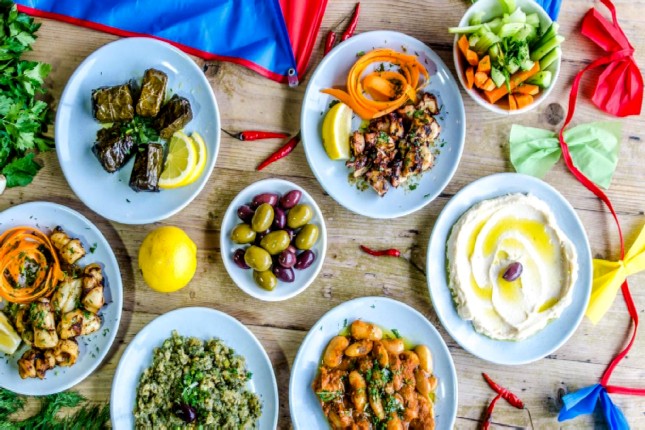
For Greeks, even fasting is all about food! The fasting meals during lent reflect the rich culinary array of the country. The vegetable dishes cooked in a tomato, onion, garlic, and olive oil sauce, called ladera, and the abundant fruit of the seas, make the 40-day pre-Easter abstinence feel more like indulgence than penance. So, if you have a vacation planned during Lent, don’t worry!
Additionally, the Greek Orthodox fasting discipline is quite lenient when one is traveling, and exceptions are made when a foreigner is receiving another’s hospitality. This is because Lent is a period when individuals are more conscious of their spiritual character and accepting the love and generosity of others rather than focused on outward shows of piety.
The Agape Meal
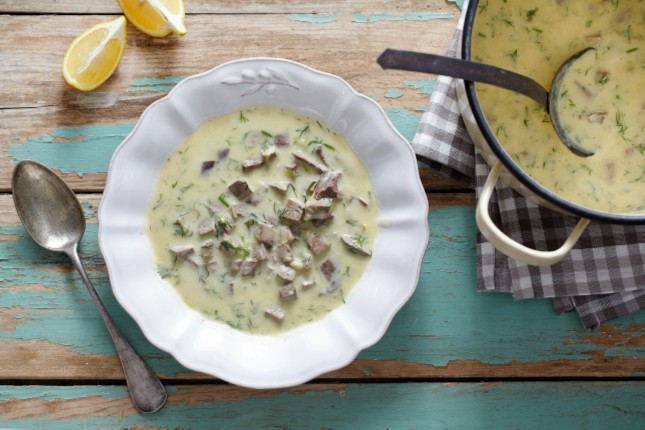
The Easter midnight liturgy is followed by the much-awaited Agape Meal (or Love Feast). Afterward, at home, everyone gathers around the table for the traditional meal that will break the fast. The Agape Meal has regional variances, but in general, everyone enjoys mageiritsa; a soup of organ meats, lettuce, scallions, dill and egg-lemon liaison. This most joyous of celebrations fills the air with gratituide, love, and laughter and may last until the wee hours of the morning.
The Agape Meal also includes the tsoureki (sweet Easter bread) and dyed red eggs. Before the eggs are eaten, there's a traditional challenge called tsougrisma. It's a game enjoyed by children and adults alike. Eggs are often boiled and dyed in very large quantities since the game continues the next day with even more family and friends.
The Easter Sunday Feast
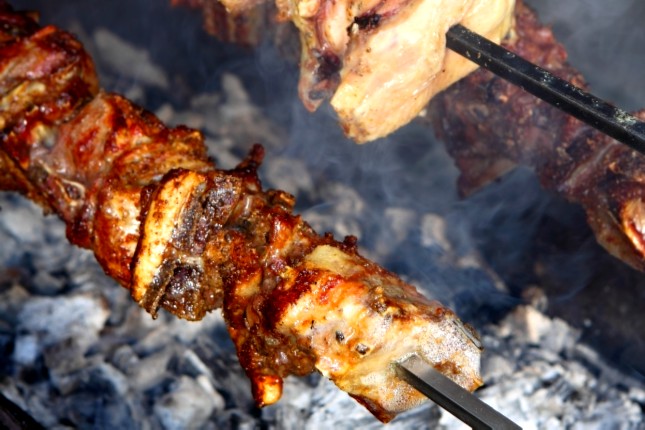
On Easter Sunday, lamb or goat is the preferred meat of choice. Lamb is mostly favored on the mainland and the Peloponnese and goat is more prevalent on the Greek islands.
At dawn, the spits are set, and the grills are fired up. The customary practice of the day is to roast the lamb or goat whole on a charcoal spit. Onlookers try to pull pieces off the lamb without burning their fingers as they gulp down their homemade wine and cheer to good health! Appetizers, such as Kalamata olives, tzatziki, Greek salad and feta cheese are served for guests to enjoy while watching the lamb cook.
The meat may also be roasted in the oven, which is how it is prepared on many Greek islands. Ovens are filled with traditional accompaniments, such as potatoes with lemon and oregano, and tiropita (cheese pie) or spanakopita (spinach pie).
And for dessert, tsoureki (the plaited bread) is a classic everywhere, as are special Easter biscuits called koulouria. On some Greek islands, delicious sweets made with fresh goat’s cheese and flavored with cinnamon and honey are also served.
Of course, Easter in Greece wouldn’t be complete without the celebratory song and dance while shouting “Opa!” and wishing each other a long life.
The Tsougrisma Challenge
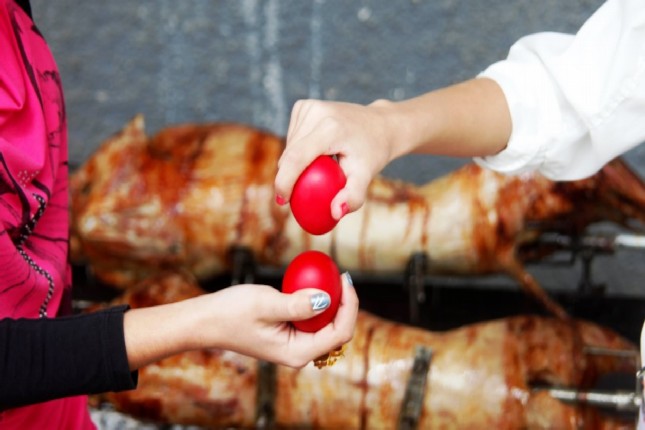
At Greek Easter celebrations, a game called tsougrisma is commonly played using the red-dyed eggs. Take the tsougrisma challenge and join in on the fun! Here’s how you play:
- Select a red egg from the lot and find an opponent.
- Say, “Christos Anesti” (Christ has risen) and tap your opponent’s egg.
- When one end is cracked, try to crack the other end of the opponent’s egg.
- The one who successfully cracks all the eggs is the winner and is said to have good luck for the rest of the year!
Easter is a holy festival celebrated by the entire Christian community across the globe to commemorate the resurrection of Jesus Christ. However, nowhere else in the world do they fest, fast and feast like at Easter in Greece!
Celebrate Easter in Greece with:
Tours in Athens
Tours in the Peloponnese
Tours on the Greek Islands

